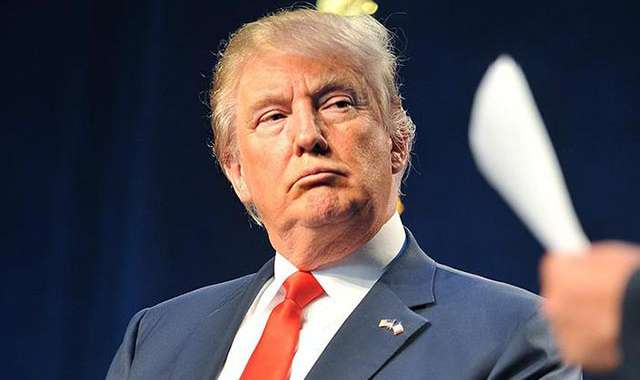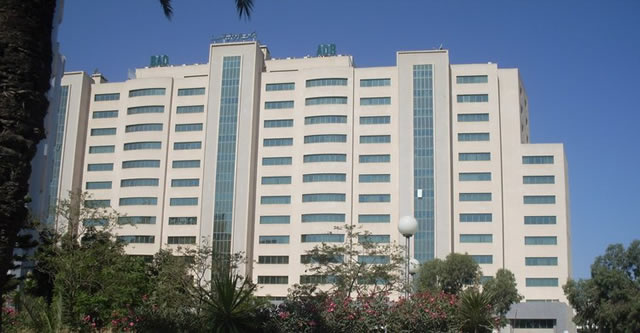Can African states out-trump Trump?

Anver Versi Correspondent
It has been just over two months since Donald Trump entered the White House as President of the United States, but no one, neither in America nor the rest of the world, really knows what will happen next.
It has certainly not been business as usual. Trump effectively put a spoke in the established, well-oiled American political carriage, particularly at the Washington-based Federal level, and sent the cart careening off the path, disgorging its contents, including a multitude of advisors, consultants, lobbyists and politicos, and scattering them all over the place.
Has any political leader, anywhere entered office amid such a cacophony of invective as well as adulation as Trump has generated? Yet, despite all the din around him, he has gone his merry way, infuriating his enemies and delighting his supporters in equal measure.
How Americans deal with Trump is their own business, but we in Africa cannot afford to take a sanguine view and believe the tempest will not affect us profoundly.
Love it or hate it, the US is economically, politically and culturally the most powerful nation on earth and ripples in that nation cause waves to wash on our shores.
We cannot wish it away and must deal with whatever policies the Trump administration rolls out in our direction. The first step is to try and understand the Trump phenomenon and then work with, on and around that, to (using his own philosophy), get the best deal we can.
To start with, we should remember that Trump’s default position is that of a ruthless businessman, not a career politician well versed in the art of making politically correct statements while doing the opposite.
Trump calls it as he sees it. In his book “The Art of the Deal”, he states that all negotiations are based on power differentials.
Which cards are you placing on the table and which are undisclosed in your hand and, pardon the pun, can I trump it?
Power differential
A businessman’s chief asset, he says, is to look at people square in the face and work out what they can bring to the table, if anything.
He has no time for the niceties of diplomacy nor the labyrinths of ideology. If you have something to trade, let’s exchange. If you are bringing nothing, but promises or idle threats, on your way.
In any exchange, he says, it’s all about who holds the power. If you have power, use it, otherwise what is the point of having power? He has already dismissed most of the developing world as having nothing to contribute bar their natural resources.
“Why didn’t we at least just take their oil?” he asks in exasperation at the US’ Middle East wars.
When he talks about making America great again, he means wielding the big stick. When he talks about building walls with Mexico or engaging in a trade war with China, he is laying down his bargaining positions.
When he tells big business to bring jobs back to the US, he is telling them that he is the boss.
He is well-versed in the use and deployment of distraction, bluff and double bluff, threats and counter-threats, charm offensives, body language and gestures and being able to paint the big picture that others can believe in.
These stratagems, he writes, are what made him such a formidable businessman and allowed him to get what he wanted.
So far we have seen him deploy his full array of strategies not only to climb the greasy ladder to the White House, but also to retain the loyalty, even love of his supporters, despite his systematically slashing away at their lifelines including health insurance, jobs and welfare.
Out of his comfort zone
But we have also seen him come badly unstuck as he and his team begin to realise that there is a vast difference between being the CEO of his company where his word was law and being the US president where his word, or tweet not only has far-reaching consequences but will be minutely dissected, analysed and thrown back into his teeth.
As CEO of a vast business empire, he lived in his own bubble and his echo-chamber where reality could be what you wanted it to be and no one would disabuse you of the fact. In the harsh glare of the international spotlight, “alt-facts” will be called out for what they are and the drilling and probing will be relentless.
Clearly, Trump is on very slippery ground once he is out of his comfort zone of bare-knuckle deal-making and onto the vastly more complex floor of international relations.
His hastily announced “Muslim ban”, designed to appease the rabid hate lobby, has blown back into his face, providing his critics with a rallying cry and a principle which even strange bedfellows have found a common cause to unite around.
The latest ban on “Muslim carry-on laptops” defies logic and again provides his critics with a stick to beat him with.
His wish to “drain the Washington swamp” and fill his cabinet with hardened businesspeople who have little or no international experience has left US foreign policy aimless and dangerously drifting.
Even Rex Tillerson, his Secretary of State, has said that he did not want the job, but only took it because his wife insisted on it. Will the former ExxonMobil chief be able to curb his natural business instincts to deal with the complicated minutiae of foreign affairs?
Turning the tables?
What does all this mean for Africa? So far Trump has shown no signs that he even knows where Africa is (apart from the visa ban on Somalis and Sudanese) but his budget proposals could have a major impact on the continent.
He wants to cut $10,9 billion from the State Department, including the $2,8 million to the African Development Foundation which provides grants of up to $250 000 to communities and small businesses in Africa.
He wants to cut $2,6 billion from the Environmental Protection Agency, which means that African environmental organisations will face a severe cash crisis at a time when they need support most urgently.
He has said the US will not contribute more than 25 percent to the UN’s peacekeeping costs, which will mean massive cuts to the stabilisation missions in DRC, Darfur, South Sudan and Central African Republic.
He wants the annual grant of $100 million to Kenya’s military changed to loans.
These cuts, if approved by the US Congress in October, will mean swingeing cuts to the World Food Programme and other humanitarian organisations, just at a time when famine is once again stalking large areas of the Horn of Africa and parts of Eastern Africa.
He wants to repeal the Dodd-Frank Act, which will free up international mining companies from any transparency over their dealings in Africa, with all the negative consequences this will usher in.
While the Trump administration will not be able to tinker about too much with AGOA, he will be able to decide which countries can and cannot enjoy the benefits.
On the face of it, the Trump administration will be bad for Africa. The only plus point is that he knows so little about the continent that the opportunity is there to try and fill in the blanks and using his own negotiating philosophy, make him a deal he cannot turn down.
Question is, do we have the leadership with the skills to carry this out? — New African.











Comments